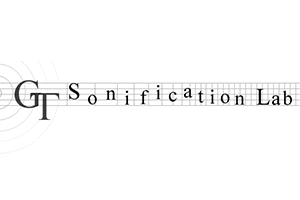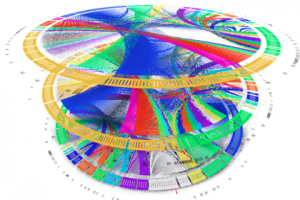The graphs and figures that are so prevalent in math and science education make those topics largely inaccessible to blind students. We are working on auditory graphs that can represent equations and data to those who cannot see a visual graph. A number of new areas we're starting research on are: looking into teaching astronomy concepts through (like the Solar System) and the teaching and understanding of weather information through a combination of sonification and auditory description. Additionally, we are working on making statistical output accessible for blind users to assist with higher level mathematics applications. We have a whole ecosystem of software and hardware solutions, both desktop and mobile, to help in this space. This project is in collaboration with the Georgia Academy for the Blind and the Center for the Visually Impaired of Atlanta.

The Georgia Tech Sonification Lab is an interdisciplinary research group based in the School of Psychology and theSchool of Interactive Computing at Georgia Tech. Under the direction of Prof. Bruce Walker, the Sonification Lab focuses on the development and evaluation of auditory and multimodal interfaces, and the cognitive, psychophysical and practical aspects of auditory displays, paying particular attention to sonification. Special consideration is paid to Human Factors in the display of information in "complex task environments," such as the human-computer interfaces in cockpits, nuclear powerplants, in-vehicle infotainment displays, and in the space program.
[Random Image of Auditory Interface] Since we specialize in multimodal and auditory interfaces, we often work with people who cannot look at, or cannot see, traditional visual displays. This means we work on a lot of assistive technologies, especially for people with vision impairments. We study ways to enhance wayfinding and mobility, math and science education, entertainment, art, music, and participation in informal learning environments like zoos and aquariums.
The Lab includes students and researchers from all backgrounds, including psychology, computing, HCI, music, engineering, and architecture. Our research projects are collaborative efforts, often including empirical (lab) studies, software and hardware development, field studies, usabilty investigations, and focus group studies.



